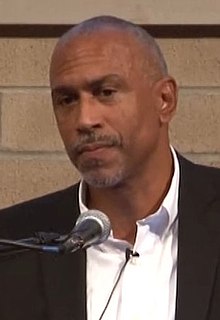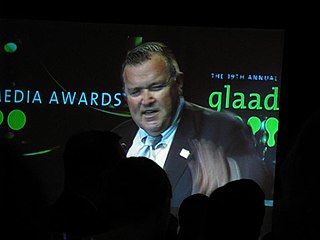A Quote by George Meyer
I'm enthralled by the national yearning that the Russians had during the 50s and 60s. The whole century was pretty rough for them. They suffered genocide, war, poverty, and half the population was sent to labor camps. But they were determined to get into space first.
Related Quotes
We're living in an age of genocide. ...And we do believe that there is not only the genocide of war, and the genocide that took place with the extermination of the Jews, but the whole program....of birth control and abortion is another form of genocide.... [T]hey claim the poor are bringing forth tremendous numbers of children and so the solution is to kill them off.
I very early caught on that the editor of Cincinnati Post had something specific in mind that he was looking for, and I tried to accommodate him in order to get published. I would turn out rough idea after rough idea, and he would veto eighty percent of them. I pretty much prostituted myself for six months but I couldn't please him, so he sent me packing.
I think Hollywood has gone in a disastrous path. It's terrible. The years of cinema that were great were the '30s, '40s, not so much the '50s...but then the foreign films took over and it was a great age of cinema as American directors were influenced by them and that fueled the '50s and '60s and '70s.
Well, here you had a city that was selling more cars than ever before, that had this wondrous music being created, that was so vital to the labor and civil rights of this country, and yet it was dying and didn't see it, except for some sociologist at Wayne State University who predicted that Detroit was losing population by a half-million by the end of that '60s decade, and that that trend would continue taking away its tax base.
The origins of these [schooling] federal policies were tied to President Johnson's war on poverty. Supplemental funds were sent to school districts serving poor children to compensate for issues related to poverty. Since the enactment of NCLB, the focus on mitigating poverty has been replaced by a focus on accountability as measured by test scores.
It is ... necessary to whip up the population in support of foreign adventures. Usually the population is pacifist, just like they were during the First World War. The public sees no reason to get involved in foreign adventures, killing, and torture. So you have to whip them up. And to whip them up you have to frighten them.
When I was growing up in the '50s, I had never heard of a "woman film director," so I did not consider it as an option. But I was fortunate that in the late-'60s and '70s, because of the feminist movement, women were stepping into all sorts of careers that had been closed to them in the past and film was one of them.
in coming to terms with the newly dead, I seem to have agitated the spirits of the long dead. They were stirring uneasily in their graves, demanding to be mourned as I had not mourned them when they were buried. I was plunged into retroactive grief for my father, and could no longer deny, though I still tried, the loss I'd suffered at the death of my mother. ... Was it possible ... that one could mourn over losses that had occurred more than half a century earlier?



































